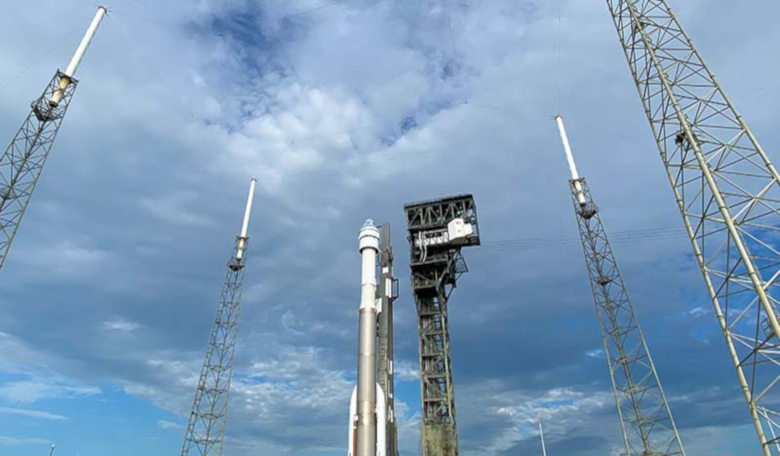Boeing's second attempt at an uncrewed test flight of its new Starliner capsule to the International Space Station has been postponed indefinitely due to an "unexpected valve" problem discovered after an electrical storm yesterday.
“We're not proceeding with Starliner launch tomorrow [4 August]. Our team cycled the Service Module propulsion system valves and is taking time to gather data for next steps. We've ruled out software as a cause for the unexpected position indications,” Boeing said in a Tweet.
The delayed flight was initially due to take place on Friday 30 July, however NASA and Boeing decided to stand down from the launch attempt after Russia’s Nauka module caused the International Space Station to spin following a thruster misfire.
Boeing then rescheduled Starliner’s launch for 3 August at 5.20 pm GMT (1:20pm ET) to allow station managers time to assess the situation.
However hours before launch, Boeing issued a statement saying that during pre-launch preparations, engineers monitoring the health and status of the vehicle detected “unexpected valve position indications in the propulsion system.”
“Boeing and NASA teams are assessing the situation. The team will provide updates regarding a launch attempt on Wednesday, Aug. 4,” the aerospace giant tweeted Tuesday.
But, after working through several steps to troubleshoot the incorrect valve indications, it appears NASA and Boeing have been unable to identify and fix the problem.
“Engineering teams have ruled out a number of potential causes, including software, but additional time is needed to complete the assessment,” NASA said in a statement yesterday.
“Mission teams have decided to roll the Atlas V and Starliner back to the Vertical Integration Facility (VIF) for further inspection and testing where access to the spacecraft is available. Boeing will power down the Starliner spacecraft this evening. The move to the VIF is expected to take place as early as tomorrow.”
No further date has been given by either NASA or Boeing as to a future launch attempt and have instead said “they will take whatever time is necessary” to ensure Starliner is ready for its important uncrewed flight test to the space station.
Boeing is designing, building, testing and flying the CST-100 Starliner under a contract with NASA’s Commercial Crew Programme.
The space agency is also funding SpaceX under the same deal to work on its Crew Dragon astronaut shuttle service.
But while Crew Dragon has already performed a successful mission to the ISS with astronauts on board – a flight which made spaceflight history last year – Starliner has been plagued by problems preventing even an uncrewed flight from taking place.
Its first orbital test in 2019 ended with the capsule failing to rendezvous with the ISS due to various software problems.
Although it did successfully land back on Earth two days later, these latest problems are another blow to Boeing who were criticised by NASA last year for excessive costs and technical challenges that continued to impact the Commercial Crew programme schedule.











